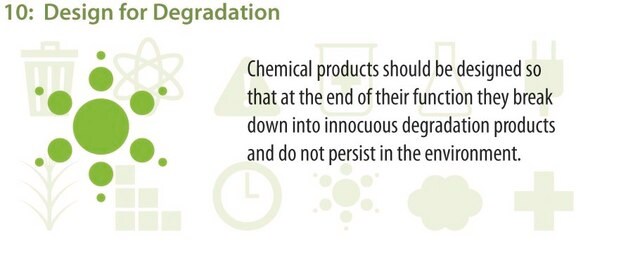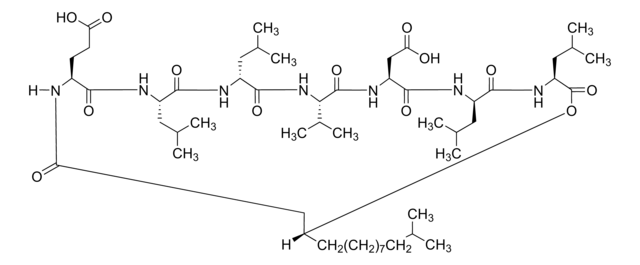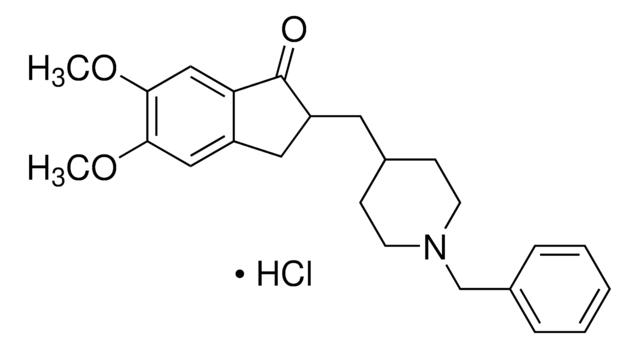R95DD
Rhamnolipids
95% (Di-Rhamnolipid dominant)
Synonym(e):
Rhamnolipids
About This Item
Empfohlene Produkte
product name
Rhamnolipids, 95% (Di-Rhamnolipid dominant),
Biologische Quelle
Pseudomonas aeruginosa
Qualitätsniveau
Form
solid/granular
Grünere Alternativprodukt-Eigenschaften
Design for Degradation: Greener alternative product characteristics
Learn more about the Principles of Green Chemistry.
sustainability
Greener Alternative Product
Grünere Alternativprodukt-Kategorie
, Aligned
Versandbedingung
ambient
Lagertemp.
room temp
Suchen Sie nach ähnlichen Produkten? Aufrufen Leitfaden zum Produktvergleich
Allgemeine Beschreibung
We are committed to bringing you Greener Alternative Products, which adhere to one or more of The 12 Principles of Greener Chemistry. This product has been enhanced for hydrocarbon degradation. For more information see the paper Environmental applications of biosurfacants: recent advances, and the many other articles available at: AGAE Technologies
Anwendung
Rechtliche Hinweise
Lagerklassenschlüssel
11 - Combustible Solids
Flammpunkt (°F)
Not applicable
Flammpunkt (°C)
Not applicable
Analysenzertifikate (COA)
Suchen Sie nach Analysenzertifikate (COA), indem Sie die Lot-/Chargennummer des Produkts eingeben. Lot- und Chargennummern sind auf dem Produktetikett hinter den Wörtern ‘Lot’ oder ‘Batch’ (Lot oder Charge) zu finden.
Besitzen Sie dieses Produkt bereits?
In der Dokumentenbibliothek finden Sie die Dokumentation zu den Produkten, die Sie kürzlich erworben haben.
Unser Team von Wissenschaftlern verfügt über Erfahrung in allen Forschungsbereichen einschließlich Life Science, Materialwissenschaften, chemischer Synthese, Chromatographie, Analytik und vielen mehr..
Setzen Sie sich mit dem technischen Dienst in Verbindung.





